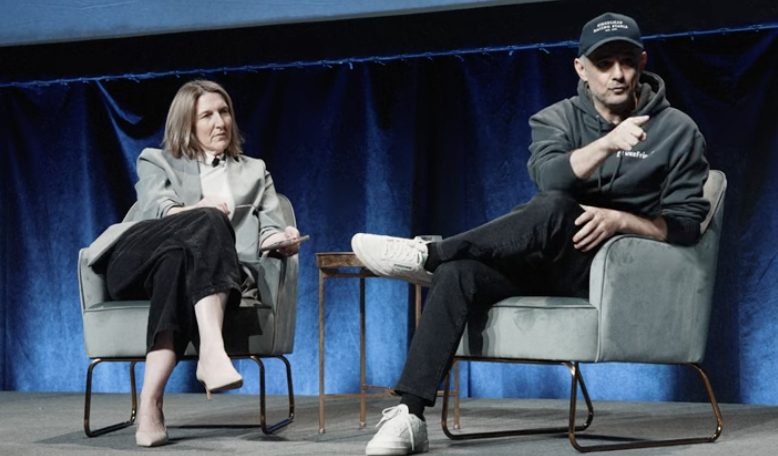Michael Mothner has spent 15 years building the largest independent advertising agency in the world from zero to $350 million in annual revenue. So trust me when I say Michael understands the fear surrounding AI. The anxiety about job security. The worry about being replaced. Michael feels it too. AI won’t replace your creativity, judgment, or ability to lead—it’s designed to handle repetitive work, freeing you to focus on what truly matters.
But here’s what Michael has realized after diving deep into this technology: AI isn’t coming for your job—it’s coming for your tasks. And that distinction makes all the difference.
Most people are demonizing AI right now. They’re scared of what it will do and how it might take their money. Michael gets it. But Michael has come to understand that fighting against this technological shift isn’t an option. The question isn’t whether Michael wants this to happen—it’s how Michael will adapt when it does.
The Real Impact of AI on Your Career
For Michael’s company, he doesn’t see AI as a cost-cutting or headcount-reducing tool. Instead, he views it as a productivity multiplier. What used to take 90 minutes might soon take 15. This doesn’t mean he needs fewer people—it means his existing team can accomplish dramatically more. For Michael, AI won’t replace the value of human insight and collaboration; it enhances what his team can achieve together.
We’re all grossly underestimating what AI can do. If you’re not spending at least an hour daily exploring these tools, you’re falling behind. Start with ChatGPT or Perplexity. Ask specific questions about your role and how AI might impact it. Unlike traditional search engines that return generic results, AI gives personalized, actionable advice.
For example, if you’re a graphic designer worried about job security, don’t just search “Will AI replace graphic designers?” Instead, ask: “I’m a graphic designer using Adobe in an agency setting. What skills should I develop to remain valuable as AI advances?”
From Task Executor to Strategic Partner
The key to thriving in this new landscape is moving from task executor to strategic partner. You must become the architect, not the carpenter or mason. This shift requires adaptability—the single most important trait for future success.
The rigid will struggle; the adaptable will thrive. This applies emotionally, ideologically, and professionally.
We have about a decade before AI fully transforms the workplace. That’s your window to go on the offense. During this transition, the economics will shift in fascinating ways. Micheal Explains how:
- Teams will become smaller but more strategic
- Those who remain will capture more economic value
- New roles and organizations will emerge to absorb displaced talent
- The overall economic pie will grow as productivity increases
This redistribution means that if you’re currently the 17th person on a team doing tasks AI might replace, your goal should be to become valuable enough to be the 6th person somewhere else—potentially making more money than before. AI won’t just change what you do; it will change where and how you add value.
Thinkers Will Win, Doers Will Struggle
The fundamental shift is this: AI will become the doer, while humans must be the thinkers. If you only take commands and execute, you’re at risk. If you’re a coder who simply implements others’ ideas, you’re vulnerable. But if you’re the one directing what should be coded and why—you’re not only safe, you’ll likely thrive.
Consider who deserves more credit for a building: the people who placed the stones or the person who designed and engineered it? The thinker, the creative, the visionary has always provided more value. AI is simply making this reality more explicit.
In many ways, AI is redirecting value to those who always deserved it—the architects rather than the builders.
I understand if you’re still terrified despite everything I’ve said. Change is scary. But refusing to adapt won’t stop this transformation—it will only determine whether you benefit from it or get left behind.
The future belongs to those who can partner with AI rather than compete against it. Those who can provide the strategic direction, creative vision, and human judgment that machines cannot replicate. Those who see AI not as a threat but as the most powerful tool humans have ever created.
Are you ready to become that person? Because ready or not, the future is coming. And I’d rather see you on the winning side.







